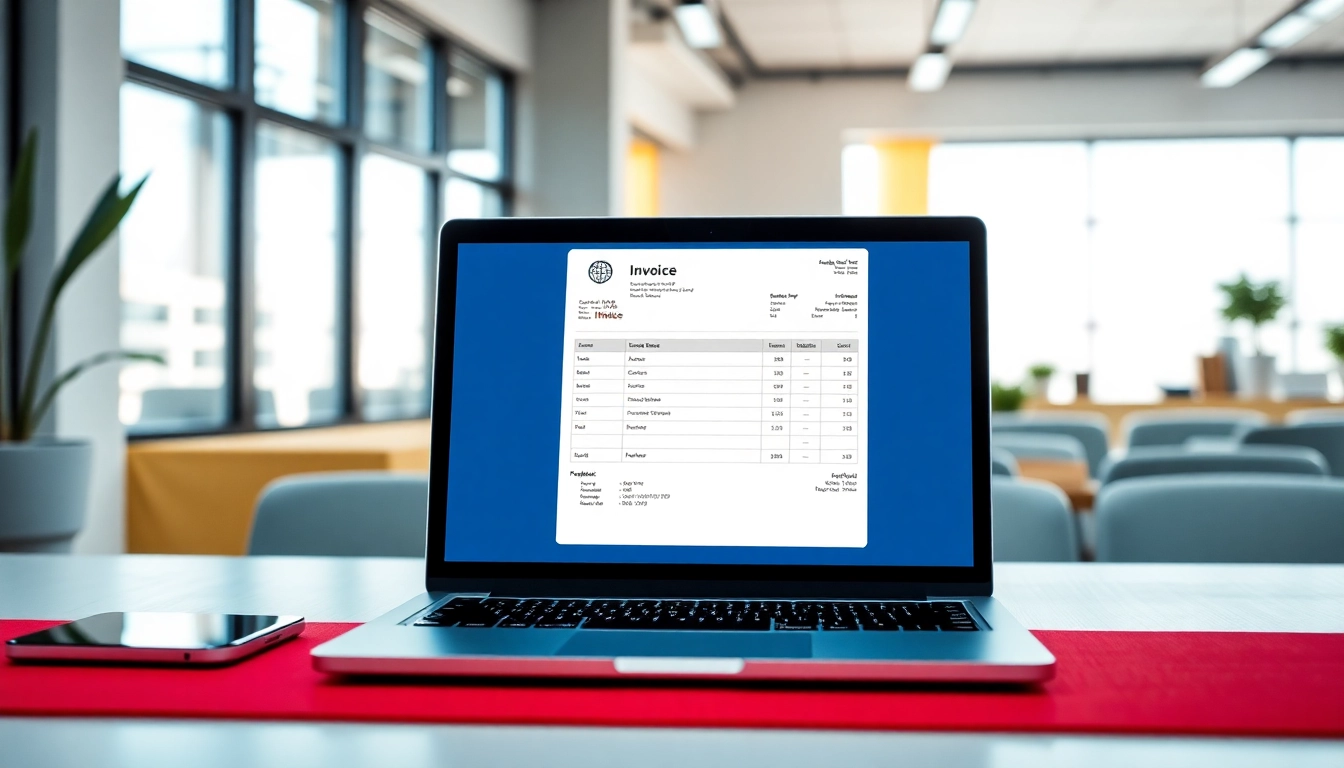
Understanding the Importance of Staying Updated on Latest Investment News
In the rapidly evolving landscape of financial markets, staying informed about the latest investment news is crucial for both novice and seasoned investors. Market dynamics are influenced by a multitude of factors, including geopolitical events, economic indicators, corporate earnings, and technological innovations. Access to timely and reliable news can significantly impact decision-making, enabling investors to seize opportunities and mitigate risks effectively. To navigate this complex environment, investors must leverage advanced tools and develop disciplined strategies for monitoring market developments. For more insights on how to stay ahead, visit our dedicated resource on Latest Investment News.
Why Investors Need Real-Time Market Updates
Real-time updates enable investors to respond swiftly to market-moving events. For example, sudden geopolitical conflicts or economic policy changes can cause immediate market fluctuations. Without prompt information, investors risk lagging behind, potentially leading to missed opportunities or increased losses. Modern technology, including mobile notifications, financial apps, and data feeds, empowers investors to access breaking news instantaneously, cultivating a proactive rather than reactive approach. This immediacy supports strategic agility, allowing investors to adjust positions in a timely manner and capitalize on short-term market movements.
Impact of Up-to-Date News on Investment Strategies
Timely news influences not only short-term trading but also long-term investment strategies. For instance, news about technological breakthroughs or regulatory shifts can alter a company’s fundamentals, prompting reevaluation of its valuation and growth potential. Investors who integrate current news insights into their portfolio planning can identify emerging trends early and pivot accordingly. This agility can enhance returns, reduce exposure to declining assets, and maintain alignment with overarching financial goals. Moreover, in volatile environments, staying informed helps investors avoid panic-selling and supports disciplined, evidence-based decision-making.
Common Challenges in Tracking Investment News Effectively
Despite its importance, tracking investment news presents challenges. The overwhelming volume of information can lead to analysis paralysis, where investors struggle to filter relevant from irrelevant news. Misinformation and sensationalism further complicate discerning credible sources. Additionally, time-zone differences and language barriers may hinder access to critical updates. To overcome these obstacles, investors need a strategic approach—using reliable tools, setting specific monitoring routines, and cultivating media literacy to evaluate the credibility of news sources.
Sources and Tools to Access Reliable Latest Investment News
Top Financial News Websites and Platforms
Leading financial news platforms such as Bloomberg, Reuters, CNBC, and Financial Times offer comprehensive coverage of global markets, delivering verified news, expert analyses, and data. Subscription-based and free-tier options provide tailored content suitable for different investment styles. Institutional investors may also utilize specialized platforms like FactSet or S&P Capital IQ for in-depth research. These sources are invaluable for gaining a nuanced understanding of market trends and breaking developments.
Utilizing Market Alerts and Notifications
Market alerts are essential for maintaining a real-time grasp of significant events. Many financial apps and brokerage platforms support customizable alerts for specific stocks, indices, commodities, or economic indicators. For example, setting notifications for price breakouts, earnings surprises, or geopolitical alerts ensures timely awareness. Automation tools and AI-powered news aggregators further enhance this process by filtering relevant news based on predefined criteria, reducing information overload and ensuring you get critical updates promptly.
Leveraging Data Analytics for Investment Decision-Making
Data analytics tools transform raw news data into actionable insights. Machine learning algorithms analyze historical news patterns, sentiment scores, and macroeconomic indicators to forecast market reactions. Platforms like Kensho or AlphaSense enable investors to analyze news impact quantitatively, supporting evidence-based decisions. Incorporating these analytical tools into your workflow allows for a more nuanced understanding of how news influences asset prices and investor sentiment, fostering better risk management and strategic positioning.
Integrating Latest Investment News into Your Portfolio Planning
Analyzing News Impact on Asset Classes
Different asset classes react variably to market news. Equities may experience rapid swings in response to corporate earnings or geopolitical developments, while bonds are often influenced by interest rate news and inflation data. Commodities, cryptocurrencies, and real estate markers each respond to specific news catalysts. Understanding these dynamics enables investors to evaluate how current news impacts their assets and to adjust allocations accordingly, enhancing portfolio resilience.
Adjusting Investment Strategies Based on News Insights
Effective integration involves translating news insights into tactical and strategic adjustments. For example, if geopolitical tensions escalate, an investor might reduce exposure to emerging markets or oil-related sectors. Conversely, positive technological developments could justify increased positions in renewable energy stocks. Regularly reviewing your investment thesis in light of current news helps maintain a proactive approach, balancing risk and opportunity in your portfolio.
Case Studies: Successful Responses to Market News
One notable example is the rapid response of investors to the COVID-19 outbreak in early 2020. Those who monitored news about the pandemic and related economic measures were able to reposition their portfolios swiftly—shifting into sectors like technology and healthcare, while hedging or reducing exposure to travel and hospitality stocks. Such agility mitigated losses and positioned these investors for a strong recovery. These cases underscore the importance of vigilant news monitoring and strategic adaptation.
Best Practices for Monitoring and Interpreting Market News
Developing a Consistent News Review Routine
Establishing a daily or hourly routine for reviewing market news ensures consistent awareness and reduces the risk of missing critical developments. Structuring your routine around specific sources and times—such as morning briefings, lunchtime updates, and end-of-day summaries—helps build a disciplined habit. Using tools like news aggregators and RSS feeds can streamline this process, ensuring efficiency and reliability.
Identifying Credible News Sources
Credibility is paramount. Prioritize established, reputable outlets with rigorous editorial standards. Cross-reference news from multiple sources to verify accuracy. Building relationships with financial analysts and subscribing to expert newsletters can also enhance your understanding. Avoid sources known for sensationalism or unverified claims, as misinformation can lead to poor investment decisions.
Avoiding Information Overload and Misinformation
To prevent overload, set clear filters such as relevant sectors, asset classes, or economic indicators. Use advanced search and alert tools to focus on critical news. Develop media literacy skills to assess the reliability of information—question sources, check for corroboration, and be wary of hype. Striking a balance between staying informed and avoiding paralysis by analysis is essential for effective decision-making.
Measuring the Effectiveness of Your Investment News Strategy
Tracking Portfolio Performance Post-News Updates
Regularly evaluate how recent news influences your portfolio by analyzing performance metrics before and after key updates. Use performance tracking tools to identify patterns—did timely information lead to advantageous adjustments? This feedback loop helps refine your news-monitoring approach and investment tactics.
Adjusting Your Approach Based on Results
If certain news sources or alert mechanisms consistently yield better outcomes, prioritize them. Conversely, if specific strategies prove ineffective, modify your routine or switch to more credible sources. Continuous assessment ensures your approach remains aligned with market realities and your financial objectives.
Long-Term Benefits of Staying Informed on Investment News
Consistent, informed decision-making contributes to enhanced risk management, improved return potential, and peace of mind. Over time, active news engagement fosters a deeper understanding of market fundamentals and behavioral cues, leading to more nuanced and resilient investment strategies. Staying ahead in today’s fast-paced markets isn’t just advantageous; it’s essential for sustainable financial success.







